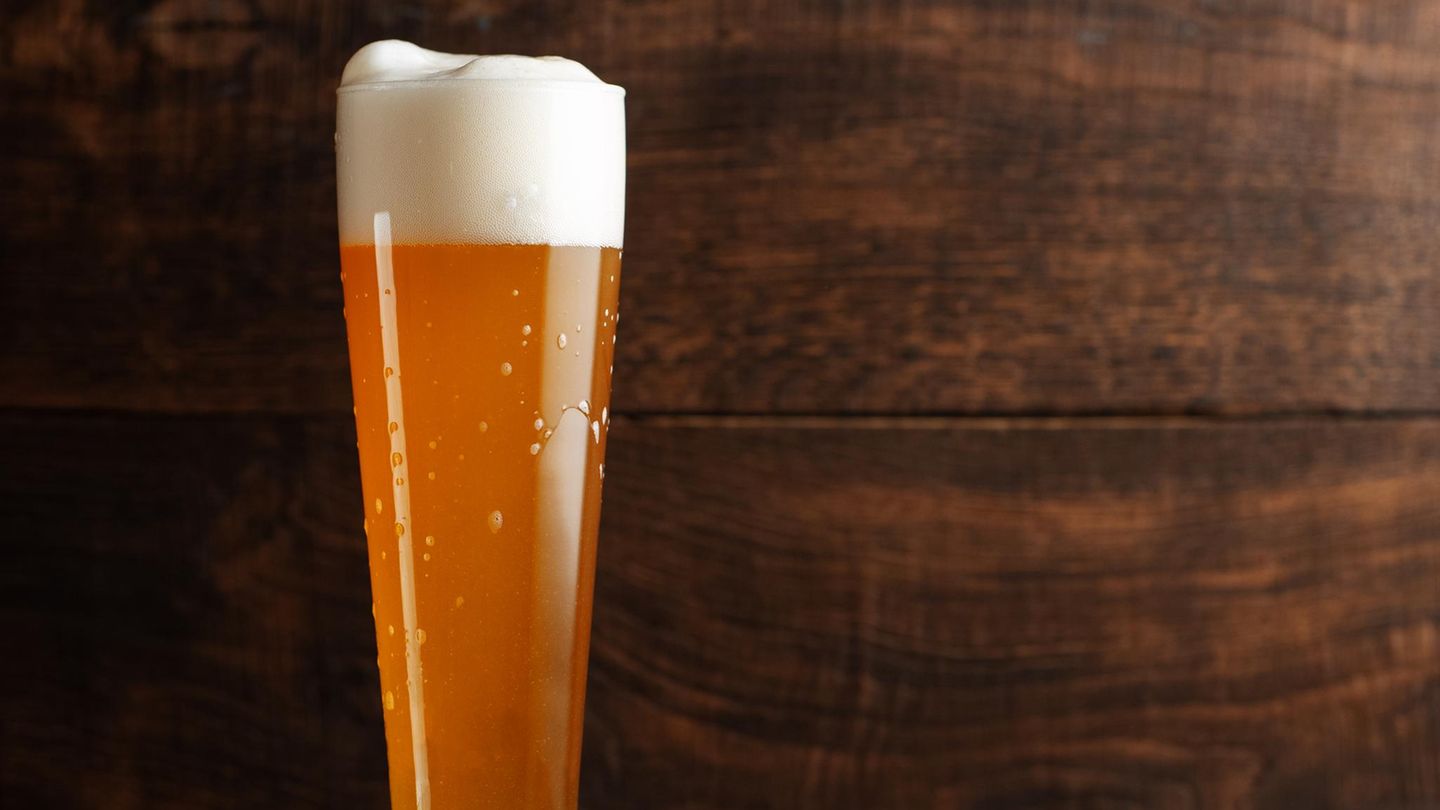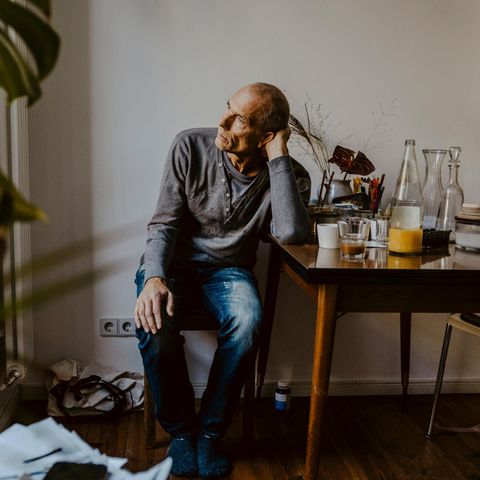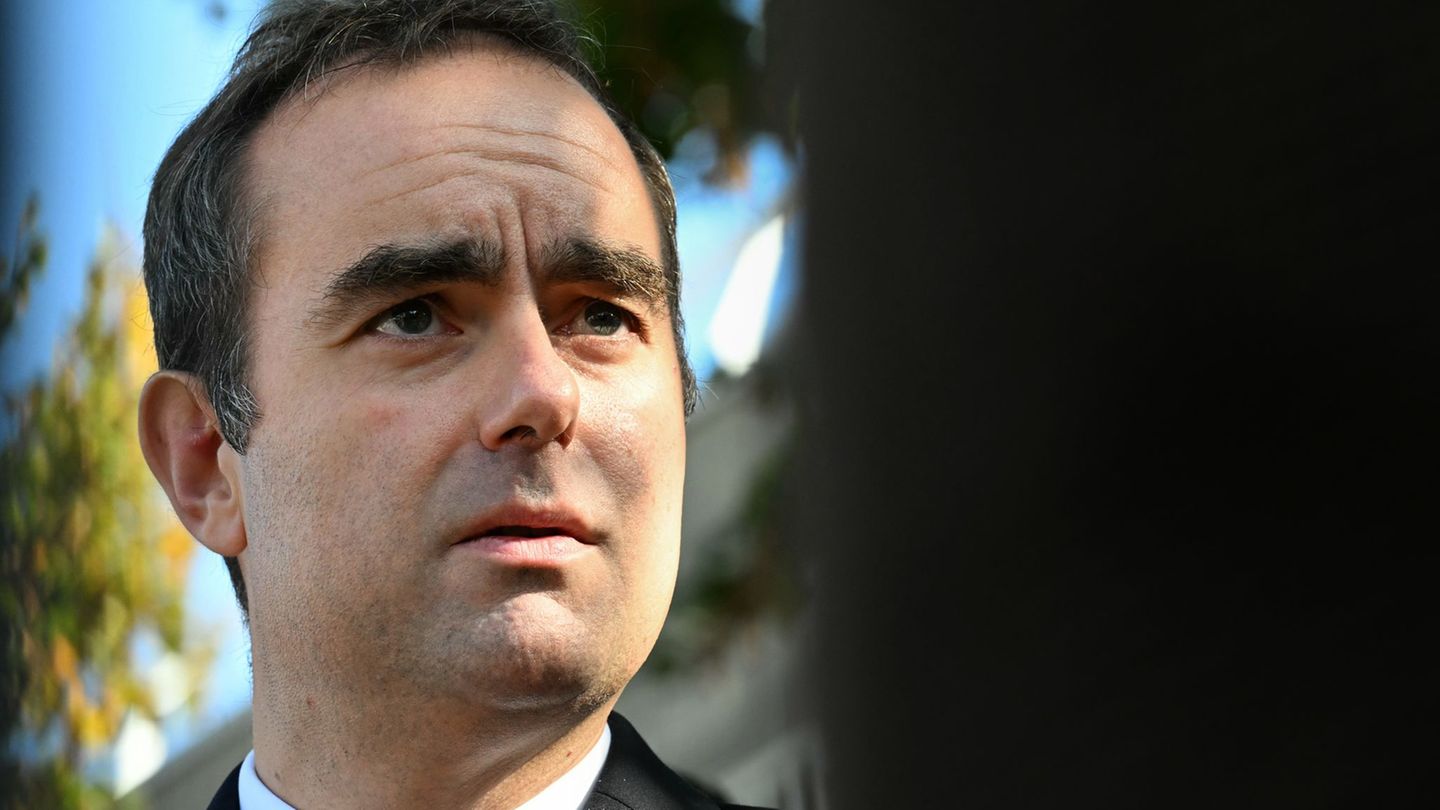Delir research
A beer against the confusion? How to assess the Basel beer study
Copy the current link
Add to the memorial list
A beer for patients every day: In a study at the Basel University Hospital, it is to check whether this method prevents the dangerous delirium. An expert classifies the whole thing.
What about the Basel beer study?
“Alcohol as delirium prophylaxis is not a new idea,” says Fatima Halzl-Yürek. The specialist in anesthesiology is a senior physician at the Charité in Berlin and specializes in the delirium, the dangerous state of confusion. “Alcohol makes sense if there is a dependency.”
In the past, beer boxes were actually kept in stock on the intensive care units to prevent a withdrawal delirium with beer in alcohol suffering. Today, medication is mostly used for this. In Basel, the researchers are now testing whether half a liter of wheat beer, which patients are administered daily, who otherwise only drink occasionally, can prevent a delirium.
What is a delirium and when does it appear?
The brain no longer works properly with a delir. Those affected are often confused and changed in their being. The risk of acute complications as well as later dementia and earlier death is increased. Delir expert Halzl-Yürek has already experienced many affected people: “You don’t know where you are, are often afraid and can suffer from hallucinations.”
Some of those affected are hyperactive and aggressive. But the patients are sleepy and apathetic much more often. Then there is a great risk that a delirium is overlooked if you are not looking for it.
A delirium can occur after an operation and in acute diseases such as stroke, traumatic brain trauma, epileptic seizures or feverish inflammation.
Who is particularly at risk?
Up to 80 percent of the intensive care patients have a delirium. Older people with many previous illnesses who take different medications are particularly at risk. But younger people can also be affected, for example after serious injuries or operations. Usually several risk factors have to come together to trigger a delirium, for example a change in medication, pain, infection or electrolyte disorders.
Treatment is difficult: “Medicines can relieve the symptoms of a delirium but do not heal. The cause must be remedied for this,” explains the expert. This is also why the professional world pursues the Basel study with great interest.
What exactly is done in the Basel beer study and why?
“The study focuses on people who regularly drink small amounts of alcohol-for example a glass of wine or beer in the evening,” explains Halzl-Yürek. The Basel researchers suspect that the patients are more susceptible to a delirium due to the sudden abstinence.
The study compares three groups: one gets beer for six days in the evening over a gastric tube, the other water, the third gets no additional liquid. But the approach is controversial. “The rules on delirbreprophylaxis contain many justified measures that have not been fully implemented in the study,” says Halzl-Yürek.
Five reasons why a delirium is so dangerous
- Risk of life: A delirium increases mortality – in the hospital and also in the long term.
- Dementia on guessing: A delirium can irreparably damage the brain. The episode? Memory gaps and an increased risk of developing dementia later.
- Difficult treatment: Confused, aggressive, hallucinating- a delirium poses problems even routine doctors and nursing staff: medical treatments are difficult.
- Longer hospital stay: If you have a delirium, you often have to stay in the clinic longer. Instead of quick recovery, this means: longer convalescence and more stress for everyone.
- Nerve: Exposure for relatives: aggressive outbreaks and hallucinations ensure a lot of emotional stress. A delirium demands everyone!
How can you properly prevent a delirium?
“The most effective measures are non-drug nature,” says the expert. The range of measures is particularly large when a so -called elective procedure is due, so it is not an emergency operation and there is enough time. “An operation is like a marathon – you have to prepare well. This is often underestimated because medicine is so good today and can also treat seriously ill and very old people.”
For example, you should pay attention to this in advance:
- Screening: Identify patients with an increased risk of delirium based on previous illnesses and medication
- Estimate the risk: Treat risk factors such as anemia or shifts in the electrolyte balance
- Treat previous illnesses: Optimize a poorly set blood pressure or sugar balance
- Check medication: Active ingredients that favor a delirium, convert before the intervention or, if justifiable, pause
- Mobilize reserves: Improve physical resilience through two to three weeks of breathing and strength training
What to do after the operation and with increased risk?
If you use all non-pharmacological prevention measures, up to 30 percent of the deliriums can be prevented in the clinics, says Halzl-Yürek. “The most important measure is to measure the Delir regularly, daily and consistently so as not to overlook it.” Trained nursing staff should therefore be targeted at least once per layer -i.e. every eight hours -risk patients.
Other sensible measures are:
- Intellectual stimulation: Daily contact with familiar persons (relatives), intellectual stimulation through literature, media, games
- Foreign material (catheter etc.): Remove early if the indication is missing to avoid infections
- Freedom of pain and fear: “We ask if there is anything that causes fear or concern to patients. Because the deliris is increasing in pain and stress,” says Halzl-Yürek
What does the expert say about the beer study?
“Basically, it is exciting to research new approaches,” says Halzl-Yürek. “But I would have expected that all the proven guideline recommendations were being implemented holistically – and then also tested the effect of alcohol. As the study is created, evidence -based prevention measures are neglected.”
Conclusion: beer or would you prefer guideline?
The Basel study causes discussions. Even if she could close a knowledge gap, the question remains whether beer is really the best remedy. Expert Halzl-Yürek is also skeptical: “I doubt that you will see an effect.” The results will show whether the wheat beer actually works.
Source: Stern
I’m Caroline, a journalist and author for 24 Hours Worlds. I specialize in health-related news and stories, bringing real-world impact to readers across the globe. With my experience in journalism and writing in both print and online formats, I strive to provide reliable information that resonates with audiences from all walks of life.





